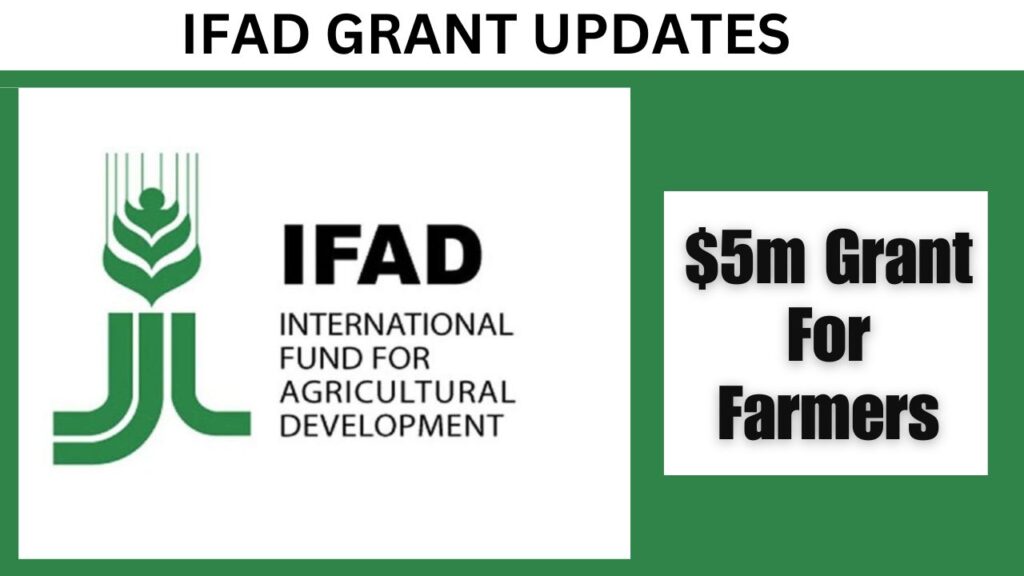Stuck Funds for Nigerian Farmers: Understanding the Delay in IFAD’s Grant
Nigerian farmers facing climate challenges might have to wait a little longer for promised financial assistance. The International Fund for Agricultural Development (IFAD) has clarified the delay in releasing a $5 million grant meant to support smallholder farmers.

What is the Grant About?
The Adaptation for Smallholder Agriculture Programme (ASAP) grant specifically targets small-scale farmers participating in the Value Chain Development Project (VCDP). These farmers are often on the frontlines of climate change, experiencing erratic weather patterns, droughts, floods, and extreme weather events. These factors significantly disrupt agricultural productivity, impacting their livelihoods and contributing to food insecurity.
The ASAP grant aimed to be a lifeline, offering crucial financial resources for these farmers to adapt to this changing environment. The funds could be used for various purposes, such as:
- Investing in drought-resistant crops: This would help farmers choose crops more likely to survive in drier conditions, ensuring a more stable harvest.
- Adopting water conservation techniques: Techniques like rainwater harvesting and drip irrigation can significantly improve water efficiency, vital during droughts.
- Diversifying income sources: The grant could enable farmers to explore additional income streams beyond traditional crops, providing a safety net when harvests are poor.
Why the Delay?
Dr. Donal Brown, Associate Vice President of IFAD, stated management issues on the part of the Nigerian government as the reason for the delay.
He emphasized that the grant can be released “as soon as they are addressed.”
What are these Management Issues?
Dr. Donal Brown, from IFAD, attributed the delay to “management issues” on the Nigerian government’s side. While specifics haven’t been publicly disclosed, Dr. Brown’s comments suggest potential areas of concern:
- Project Management Inefficiencies: IFAD might have identified gaps or inefficiencies in how the VCDP is being overseen and implemented. This could involve delays in distributing resources, inadequate training for farmers, or a lack of monitoring and evaluation systems.
- Counterpart Funding Shortfalls: The VCDP might be a collaborative effort where participating states contribute financially. Dr. Brown’s mention of “counterpart funding” suggests some states might not be fulfilling their financial commitments to the project. This shortfall creates a funding gap, hindering project progress and raising questions about government commitment.
What’s the Status of Other IFAD Projects in Nigeria?
Dr. Brown highlighted the success of ongoing projects like VCDP Additional Financing (AF) and Livelihood Improvement Family Enterprise – Niger Delta (LIFE-ND).
However, extensions requested by the government might be contingent on addressing identified issues, including those mentioned above.
What Does This Mean for Farmers?
The delay in the ASAP grant release means a temporary setback for farmers seeking support in climate change adaptation. It’s crucial for the government and IFAD to work together to resolve the management issues swiftly.
READ ALSO: FG 50,000 New FG BPO Jobs March 2024 Updates
FAQs
Q: When will the $5 million grant be released?
There’s no confirmed date yet. The release depends on the Nigerian government addressing the management issues identified by IFAD.
Q: Who can benefit from the ASAP grant?
Smallholder farmers participating in the VCDP program are eligible for support from the ASAP grant.
Q: What are some of the challenges farmers face due to climate change?
Climate change can bring erratic rainfall patterns, droughts, floods, and extreme weather events, all significantly impacting agricultural productivity and livelihoods.
Q: What can farmers do to adapt to climate change?
Several strategies can be adopted, including using drought-resistant crops, practicing water conservation techniques, and diversifying income sources.
Q: Where can I find more information about IFAD projects in Nigeria?
You can visit the IFAD website (https://www.ifad.org/en/) or contact their Nigeria Country Office for updates on their projects.
Conclusion
The IFAD grant delay is a setback for Nigerian farmers facing the challenges of climate change. However, it also presents an opportunity for improvement. By working together to address management issues, invest in long-term solutions, and improve communication, this situation can be a catalyst for a more robust and resilient agricultural sector in Nigeria.